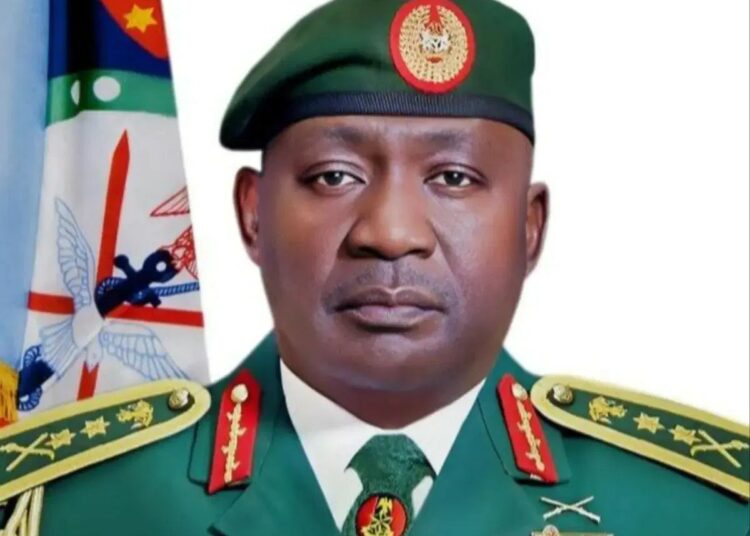It is no longer news that the African continent is having a running battle against terrorism and its related activities, especially in the Sub-Saharan region.
According to the United Nations Security Council (UNSC), arising from its 9842nd meeting, “terrorism is the most significant threat to peace, security and sustainable development across the African continent, and Africa has become the epicentre of global terrorism, with Sub-Saharan Africa accounting for 59 per cent of all terrorism-related deaths worldwide.” This grim figure should give African leaders a reason to rethink their security strategies towards addressing the threats posed by terrorism to socioeconomic activities in the African continent.
The 3-day African Chiefs of Defence Staff Summit, which was held in Abuja recently at the instance of the Chief of Defence Staff, General Christopher Musa indeed opened a new vista in the call for unity, collaboration, and decisive action in tackling the threats posed by terrorism on the African continent.
The summit theme, “Combating Contemporary Threats to Regional Peace and Security in Africa: The Role of Strategic Defence Collaborations,” resonates with this newspaper’s position on the need for strategic collaborations among African countries to tackle the menace posed by non-state actors through their nefarious activities.
It could be said that the Boko Haram Insurgency, which has gained notoriety in Nigeria, was aided by conflict in the Sahel region and the attendant proliferation of small arms and light weapons along the Sahelian routes. This is on the heels of Nigeria sharing borders with countries in the Sahel region, and the need for regional collaborations cannot be overemphasised, given its crucial role in regional stability.
As a newspaper, we recognise that regional collaborations in the fight against terrorism have taken a step further with the maiden African Chiefs of Defence Staff Summit.
The key takeaways from the summit, which include the urgent need for tighter border management to curb terrorism, banditry, and illicit trafficking and stronger joint operations, intelligence sharing, and counter-radicalisation measures to outpace extremist networks, reflect a reawakening that African leaders must sustain.
We are impressed with the participants’ recognition of the necessity of building indigenous defence industries to reduce the reliance on foreign support for our military operations. It is also a welcome development that witnessed the signing of a Memorandum of Understanding (MoU) for an International Defence Exhibition to be held in Lagos in 2026 by the Defence Chiefs at the Summit.
The time is ripe for African countries to look inwards towards developing defence capabilities to strengthen their operations. Countries like Egypt, South Africa, and Algeria have made substantial investments in this regard, and Nigeria, through the Defence Industries Corporation (DICON), is also making inroads toward developing defence capabilities to meet the operational needs of our security forces. We also recognise the economic angle to developing our defence capabilities, as it can stimulate local economies and create jobs for the teeming youthful population of the continent.
It is important to point out that such an enterprise would also increase security cooperation between African countries, which the African Chiefs of Defence Staff Summit aims to achieve. It is hoped that the resolutions reached at the Summit would bring a turning point for decisive and collective action in the quest for regional peace and security.
We commend the Chief of Defence Staff, General Musa, for this laudable initiative. If fully implemented, it would change the narrative on the prosecution of the war against terrorism and terrorism-related activities on the African continent.
This is a big milestone that African leaders must embrace by demonstrating the necessary political commitment to drive the initiative to improve the lot of our security agencies. We can only imagine the multiplier effect that would come about as a result of improved regional collaboration among African countries in the war against terrorism.
The new initiative aligns with President Bola Tinubu’s recent call for the establishment of a regional counter-terrorism centre that will serve as a hub for intelligence sharing, operational coordination, and capacity building throughout Africa.
The president also emphasised that the African region must strengthen existing counter-terrorism structures, such as the Regional Intelligence Fusion Unit (RIFU) in Abuja, the African Centre for the Study and Research on Terrorism (ACSRT) in Algiers, and the Committee of Intelligence and Security Services of Africa (CISSA) in Addis Ababa. This is instructive and tailored towards finding homegrown solutions to the threats posed by terrorism in the African continent. As a newspaper, we extend our support to this new drive and pledge our support towards its implementation. This is a defining moment for the African continent.
However, we foresee a problem with a historical background. Most African leaders owe allegiance to countries outside Africa, which they rely on for support, even in security matters. Will they be willing to break this link? That is the million-dollar question.





